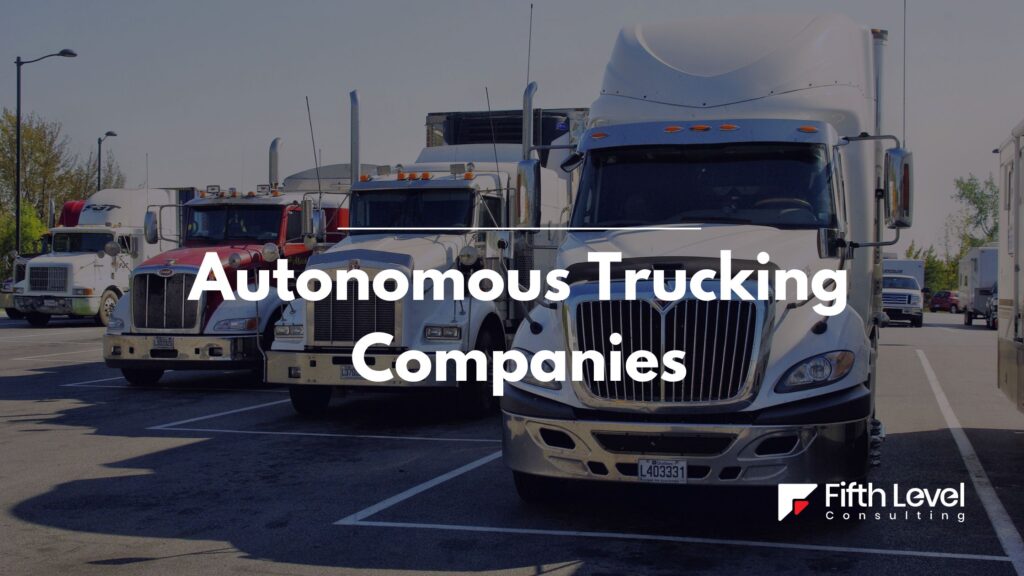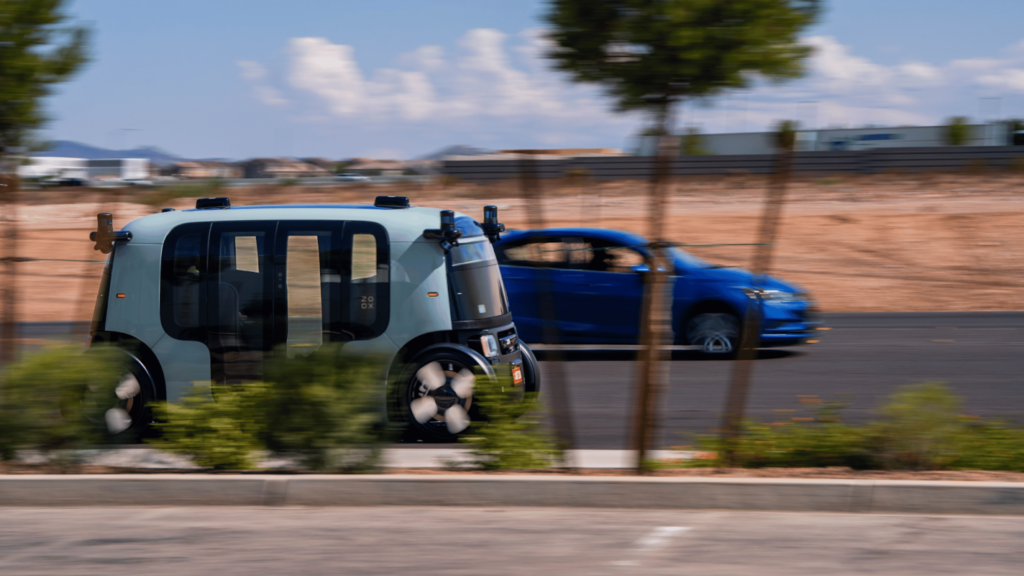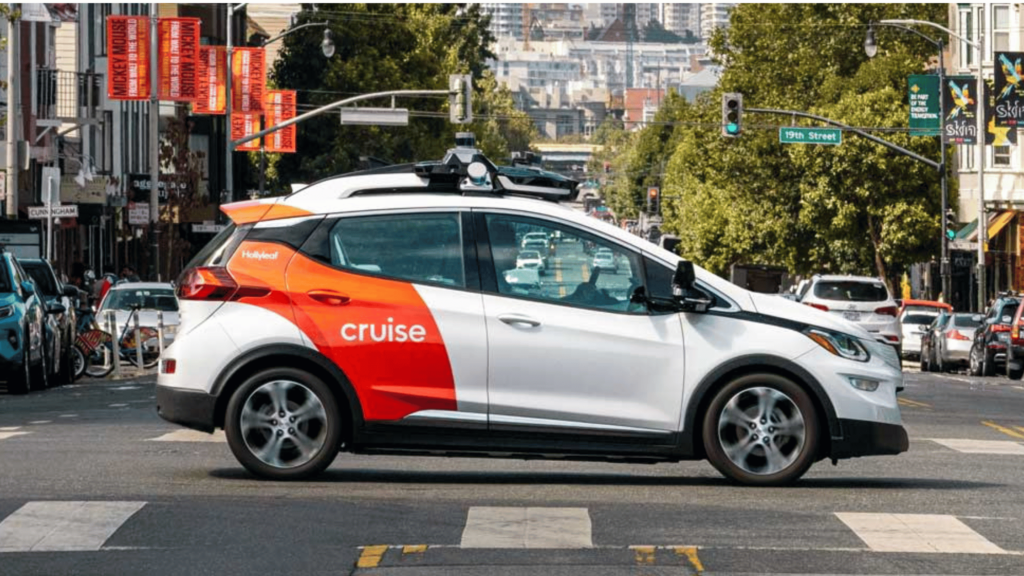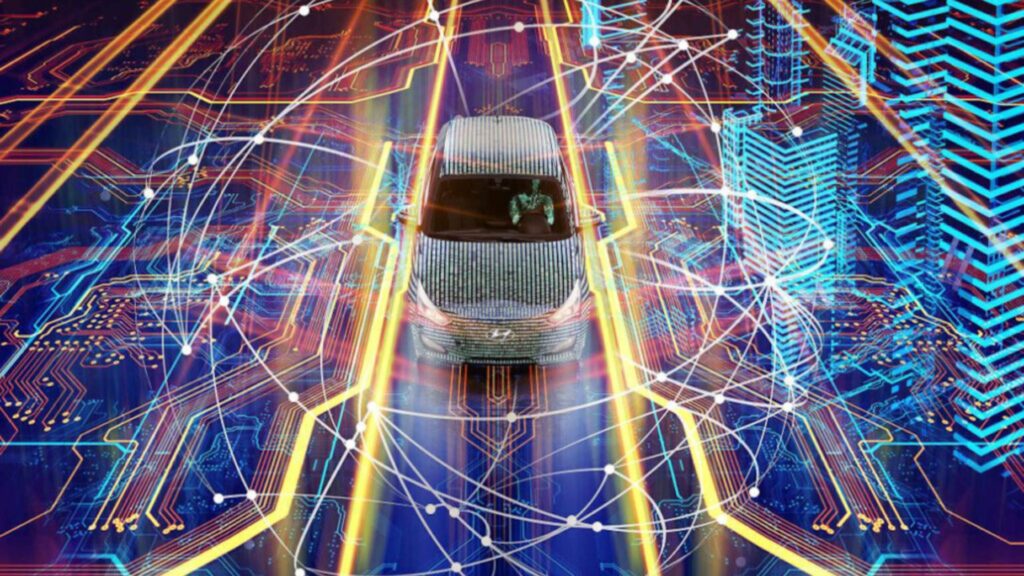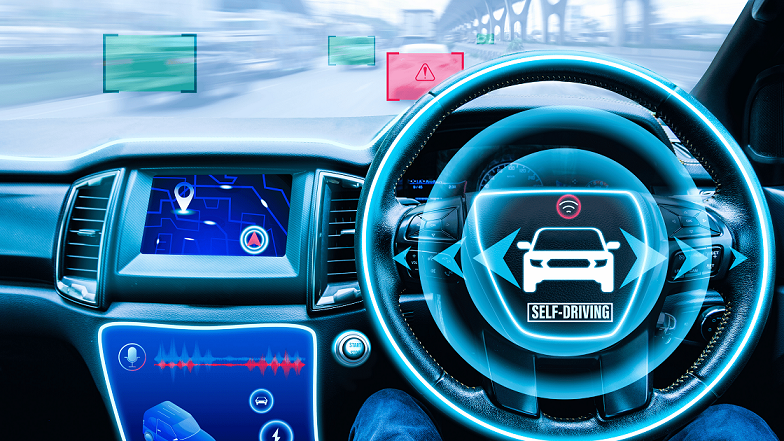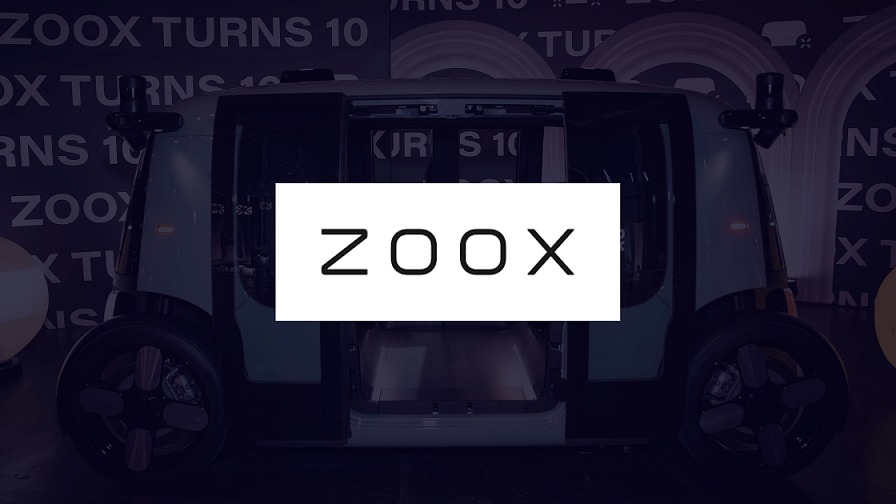The autonomous trucking industry in the United States is at a pivotal point, with technological breakthroughs, strategic partnerships, and commercial deployments reshaping logistics as we know it. Self-driving trucks promise to address critical challenges in the trucking sector, including driver shortages, safety concerns, and operational inefficiencies, while paving the way for a more sustainable and efficient future.
This article explores the top five autonomous trucking companies in the US—Aurora Innovation, Kodiak Robotics, Gatik, Waabi, and Einride—examining their recent advancements, levels of autonomy, and unique contributions to the industry.
The Rise of Autonomous Trucking
Autonomous trucks, or robo-trucks, leverage advanced technologies such as LiDAR, radar, cameras, and artificial intelligence (AI) to navigate highways and logistics hubs without human intervention. The Society of Automotive Engineers (SAE) defines six levels of driving automation, from Level 0 (no automation) to Level 5 (full automation). Most companies in 2025 are focused on achieving Level 4 autonomy, where vehicles can operate independently within specific operational design domains (ODDs), such as highway routes or controlled environments, without requiring human oversight under normal conditions.
The U.S. is a hotbed for autonomous trucking innovation, with Texas and California serving as primary testing grounds due to their favorable regulations and extensive highway networks. The industry is projected to grow significantly, with market estimates suggesting a rise from $1 billion in 2020 to $1.7 billion by 2025, driven by the promise of reduced labor costs, enhanced safety, and 24/7 operations. However, challenges such as regulatory fragmentation, public skepticism, and the complexity of navigating unpredictable road conditions remain hurdles to widespread adoption.
Below, we analyze the top five autonomous trucking companies in the US, highlighting their recent updates, technological advancements, and levels of autonomy.
- Aurora Innovation
- Kodiak Robotics
- Gatik
- Waabi
- Einride
1. Aurora Innovation
Level of Autonomy: SAE Level 4
Aurora Innovation, headquartered in Pittsburgh, Pennsylvania, is a frontrunner in the autonomous trucking space, focusing on long-haul freight transport. The company’s flagship product, the Aurora Driver, is a Level 4 self-driving system designed to integrate with various truck platforms, including those from partners Paccar and Volvo.
Aurora’s approach emphasizes safety, scalability, and commercial viability, making it a leader in hub-to-hub operations.
Recent Updates
In May 2025, Aurora made history by launching fully driverless operations on the Dallas-Houston corridor, a 240-mile freight route, without safety drivers. This milestone followed years of testing with safety drivers and partnerships with logistics giants like Uber Freight and Hirschbach Motor Lines. The company deployed two driverless trucks initially, with plans to scale to 20 by the end of 2025. Aurora also announced a new 1,000-mile lane between Phoenix and Fort Worth, Texas, set to begin driverless operations later in 2025.
Aurora’s partnership with Continental is a game-changer, finalizing a hardware kit design for mass production starting in 2027. This kit includes automotive-grade sensors, control units, and high-performance computers, ensuring scalability and reliability. Additionally, Aurora’s collaboration with FedEx, Schneider, and Werner has enabled real-world freight hauling, with the company reporting over $1.2 billion in cash reserves to support operations into 2026.
Aurora self-driving trucks can now drive at night, unlocking more than two times the truck utilization potentials. Aurora’s next target is to operate driverless in rain and heavy wind conditions by the end of 2025, further enhancing the Aurora Driver’s capabilities.
Aurora’s safety record is bolstered by its rigorous testing, with only minor incidents reported in the National Highway Traffic Safety Administration (NHTSA) database.
Aurora’s ability to raise significant funding—well over $1 billion—positions it to scale operations and potentially dominate the long-haul market by 2027.
By the end of June 2025, Aurora had surpassed 20,000 driverless miles, 3.3M+ commercial miles, and nearly 100% on-time delivery.
Kodiak Robotics
Level of Autonomy: SAE Level 4
Kodiak Robotics, based in Mountain View, California, is renowned for its modular, vehicle-agnostic autonomous system, the Kodiak Driver. The company has made significant strides in both commercial and defense applications, emphasizing safety through redundant systems and a focus on real-world deployments.
Recent Updates
In December 2024, Kodiak became the first company to launch commercial driverless operations in the U.S., operating on private lease roads in West Texas for Atlas Energy Solutions. This deployment involved hauling fracking sand over 21 miles of dirt roads, a pivot from Kodiak’s initial focus on highway freight. The company delivered two driverless trucks to Atlas as part of a 100-truck contract, marking a significant step toward profitability.
At CES 2024, Kodiak unveiled its sixth-generation “driverless-ready” semi-truck, equipped with redundant braking, steering, and power systems, as well as upgraded SensorPods with enhanced LiDAR and radar for long-range object detection. Kodiak also partnered with Vay to integrate remote-driving technology, creating an “Assisted Autonomy” layer for complex scenarios like loading docks or construction zones. Additionally, Kodiak opened a truckport in Villa Rica, Georgia, with Pilot Company to support first- and last-mile deliveries.
Kodiak’s self-driving trucks are powered by the Kodiak Driver, which features a multi-sensor suite with 12 cameras, four LiDAR sensors, and six radar sensors, designed to be safer than human drivers by eliminating errors caused by fatigue or distraction. The company’s existing $30 million contract with the U.S. Department of Defense to adapt its autonomous technology for military vehicles defense (Robotic Combat Vehicle program) further validates its technological prowess.
Kodiak’s pivot to off-road applications in the Permian Basin demonstrates its adaptability, though its delay in on-highway deployments to 2025 has raised questions about its timeline. The company’s planned merger with Ares Acquisition Corporation II, valuing Kodiak at $2.5 billion, signals strong investor confidence. Kodiak’s focus on redundancy and partnerships with Maersk, IKEA, and Werner positions it as a versatile player, though it faces competition from Aurora’s more established highway operations.
In late July 2025, Kodiak Robotics announced that Mohamed Elshenawy, former President and CTO of GM’s Cruise, joined its Board of Directors.
3. Gatik
Level of Autonomy: SAE Level 4
Gatik, a California-based company, specializes in middle-mile logistics, focusing on short-haul deliveries for Fortune 500 retailers like Walmart and Kroger. Its autonomous box trucks operate in controlled environments, such as fixed routes between distribution centers and stores, making it a leader in this niche.
Recent Updates
In 2025, Gatik expanded its operations in Arkansas and Texas, continuing its partnership with Walmart for driverless deliveries. The company announced a tire data partnership with Goodyear, integrating SightLine intelligent tire technology to enhance safety in adverse weather conditions. Gatik’s safety approach was validated by an independent assessment, preparing it for scaled deployments. The company has also secured contracts with Georgia-Pacific and Pitney Bowes, broadening its customer base.
Gatik’s autonomous system combines LiDAR, radar, and cameras with a delivery management platform to optimize logistics.
Its focus on middle-mile logistics positions it to dominate short-haul deliveries, where safety and efficiency are paramount. By avoiding long-haul highway driving, Gatik faces fewer regulatory hurdles. However, its limited scope may restrict its market share compared to competitors like Aurora and Kodiak, who target broader applications.
Gatik announced the launch of Gatik Arena™, a new simulation platform designed to accelerate the development and validation of its autonomous vehicle (AV) systems. This platform, built with NVIDIA Cosmos, creates ultra-realistic, closed-loop simulation environments to train and validate its autonomous systems on a wide range of driving scenarios, including rare edge cases. This is intended to reduce the reliance on real-world testing and accelerate the company’s path to commercialization.
4. Waabi
Level of Autonomy: SAE Level 4
Waabi, a Canadian company with U.S. operations, takes an AI-first approach to autonomous trucking, leveraging its Waabi Driver system to achieve Level 4 autonomy. Founded by AI expert Raquel Urtasun, Waabi focuses on hub-to-hub operations with a lean, adaptable technology stack.
Recent Updates
In 2023, Waabi partnered with Uber Freight to deploy AI-powered autonomous trucks, a collaboration that continued into 2025 with expanded testing in Texas. The company raised $200 million in 2024, fueling its development of the Waabi Driver, which emphasizes flexibility and adaptability to diverse driving conditions. Waabi has been refining its system through simulations and real-world testing, focusing on hub-to-hub routes to streamline logistics.
Waabi’s AI-driven approach minimizes reliance on extensive sensor arrays, using advanced machine learning to interpret complex environments. This “AI-first” strategy enables the Waabi Driver to adapt to new routes and scenarios with less manual calibration than competitors. The system’s ability to learn from simulations reduces real-world testing costs, making Waabi a cost-effective contender.
In August 2025, Waabi made a significant addition to its leadership team by hiring Lior Ron, the former CEO of Uber Freight, as its new Chief Operating Officer (COO).
5.Einride
Level of Autonomy: SAE Level 4
Einride, a Swedish company with a growing U.S. presence, is unique for its focus on electric, cabless autonomous trucks, known as Autonomous Electric Transport (AET) Pods. These vehicles, monitored by remote operators, are designed for both industrial sites and public roads, blending sustainability with autonomy.
Recent Updates
In 2025, Einride expanded its U.S. operations, deploying full-time commercial operations with GE Appliances in Tennessee, moving goods between manufacturing facilities and warehouses. The company received NHTSA approval to operate its AET Pods on U.S. public roads under a remote operator pilot. Einride also secured $500 million in financing, supporting its expansion into Germany and other markets.
Einride’s AET Pods lack a driver’s seat, steering wheel, or pedals, relying entirely on remote monitoring and a multi-sensor suite for Level 4 autonomy. The company’s electric powertrain reduces emissions, aligning with sustainability goals. Einride’s remote operation model allows human intervention in complex scenarios, enhancing safety and flexibility.
During a “Spring Update” event, Einride unveiled several new advancements to their freight mobility platform, which includes a new software-as-a-service (SaaS) product that allows its autonomous drive stack, “Einride Driver,” to be used with any hardware. The company’s autonomous vehicles have been newly named “eBots.” Also, Einride introduced an upgraded control tower, which will allow a single remote operator to oversee multiple autonomous vehicles, aiming to improve scalability and efficiency.
In collaboration with the Fraunhofer Institute, Einride released a report quantifying the impact of their AI-powered electrification planning. The study found that this technology can reduce a fleet’s total cost of ownership by 8-13%, a significant improvement over the average 3% savings from simply replacing diesel trucks with electric ones.
Comparative Analysis and Industry Implications
| Company | Level of Autonomy | Key Focus | Recent Milestone | Strengths | Challenges |
|---|---|---|---|---|---|
| Aurora Innovation | SAE Level 4 | Long-haul trucking | Driverless operations on Dallas-Houston corridor (May 2025) | Strong partnerships, robust funding, advanced LiDAR | Regulatory oversight, capital needs |
| Kodiak Robotics | SAE Level 4 | Long-haul and off-road freight | First driverless delivery in West Texas (Dec 2024) | Redundant systems, defense contracts, SPAC merger | Delayed highway deployments |
| Gatik | SAE Level 4 | Middle-mile logistics | Expanded Walmart deliveries, Goodyear tire data partnership | Niche focus, strong retail partnerships | Limited scope to middle-mile |
| Waabi | SAE Level 4 | Hub-to-hub trucking | $200M funding, Uber Freight partnership | AI-first efficiency, cost-effective development | Smaller operational footprint |
| Einride | SAE Level 4 | Electric autonomous freight | Commercial operations with GE Appliances, NHTSA public road approval | Sustainability, remote operation model | Limited U.S. public road deployments |
The autonomous trucking industry is positioned for significant growth, as each company brings a unique approach. Aurora and Kodiak lead in long-haul applications. Gatik’s middle-mile focus ensures steady progress in a less complex domain, while Waabi’s AI-driven innovation offhers long-term potential. Einride’s electric Pods cater to the growing demand for sustainable logistics, though its U.S. presence is still emerging.
Conclusion
The best self-driving trucks in the US for 2025—Aurora Innovation, Kodiak Robotics, Gatik, Waabi, and Einride—are redefining freight transportation through cutting-edge technology and strategic vision. Aurora’s driverless highway operations, Kodiak’s redundant systems, Gatik’s middle-mile expertise, Waabi’s AI innovation, and Einride’s sustainable Pods each contribute uniquely to the industry’s evolution.
The goal is to enhance efficiency, safety, and sustainability in logistics.
It’s a complex road ahead, but the journey toward a driverless freight ecosystem is well underway.
You May Also Like:
6 Best Self-Driving Cars in the US (2025)
10 Best Self-Driving Electric Cars for 2025
10 Interesting Key Facts About Motional
Top 20 US Autonomous Vehicle Companies (2025)

I’m Dr. Brandial Bright, also known as the AVangelist. As a dedicated and passionate researcher in autonomous and electric vehicles (AVs and EVs), my mission is to educate and raise awareness within the automotive industry. As the Founder and Managing Partner of Fifth Level Consulting, I promote the adoption and innovation of advanced vehicle technologies through speaking engagements, consulting, and research as we progress to level 5 fully autonomous vehicles.

